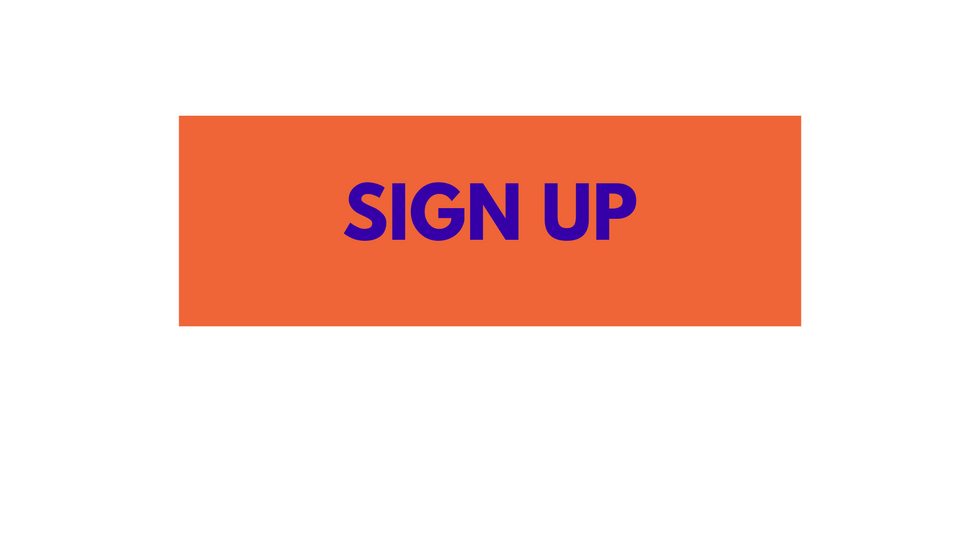Being prepared to speak about your problem-solving skills is essential if you want to be a competitive applicant for any job. But many job-seekers aren''t sure where to start!

This guide will help you come up with great examples of your problem-solving skills, so you can impress the interviewer.
The Importance of Demonstrating Problem-Solving Skills
Problem-solving skills are a critical piece of the puzzle when it comes to your success in any position. Things often veer off course and rarely go according to the plans you make on the job. Because of this, employers want to hire people who can pivot when necessary and resolve problems quickly and efficiently.
Showcasing your problem-solving skills to interviewers is a great way to prove you’re up for any challenge. It’s about showing that you know how to assess a situation, identify issues that arise, get to the root of those problems, and take the necessary steps with available resources to finesse your way out of any pickle. Highlighting your ability to navigate tough situations reassures hiring managers that you’re well-equipped to serve the company’s bottom line no matter what.
It’s an essential skill that will serve you well in any industry. From entry-level jobs up to C-suite executive roles, knowing how to solve problems will take you far.
Interviewers may ask you directly to provide examples of your problem-solving skills in action. Alternatively, they may use a series of questions to gauge your ability to overcome hurdles. Either way, you should use every opportunity to provide examples and prove that you’re capable of filling the role and using your skills to succeed.
Tips for Sharing Examples of Problem-Solving in the Workplace
There are many ways to discuss your problem-solving skills in the workplace. However, some examples are more effective than others. Follow these tips to choose moments that are impactful enough to leave a lasting impression.
1. Pick Examples That are Relevant to the Position You Want
The best approach when sharing examples is to choose situations that are relevant to the job you want to get. Think about the role and its responsibilities. Study the job description and research as much as you can about what this role entails.
Your goal is to identify common problems you’ll face if offered the position. Some examples are easily translatable across industries. For example, everyone’s had to deal with difficult clients or navigate tight deadlines.
If you want to deliver a memorable answer, choose unique examples that easily tie into the position. Maybe you faced similar challenges in roles you’ve already held in this industry. Or, you might want to provide examples that speak to common hurdles the hiring managers are all-too-familiar tackling.
Keep it related to the position you are interviewing for to make things easier for hiring decision-makers to envision you working in this position. It’s your chance to show precisely how you’d react to the challenges you face in this position.
2. Explain the Process
When giving your example, do more than keep it high level. You want to set the stage, provide some context, and fully explain your process and the skills you used.
That’s what hiring managers are interested in learning more about when speaking to you. Anyone can say they’ve experienced problems and fixed them. That doesn’t provide any meat to your response and barely scratches the surface of what interviewers want to know. (This is a great time to use the STAR interview method).
Employers are interested in learning about your approach to problem-solving. What steps do you take to find a solution? Do you throw everything at the wall until something sticks? Or are you more methodical?
Hopefully, you’re the latter. Go into detail about what you do to navigate tough situations and find the solutions that work. Let them into your thought process and show them how you operate when push comes to shove.
3. Be Prepared for Follow-Up Questions
If there’s any time that interviewers will ask for follow-ups, it’ll be when talking about your problem-solving skills. This is their chance to poke for more information and gain deeper insight into your methods. You can expect follow-ups.
Don’t find yourself looking like a deer caught in the headlights.
Think about your examples and refresh your memory as much as possible. Because you’re preparing before your interview, consider taking notes about those examples.
Recall specific details. Use the acronym PEPI (Productivity, Efficiency, Profitability, Impact) to quantify your answer. Use values such as dollars or percentage saved, number of people impacted, or time saved.
It’s impossible to know what interviewers will ask, so you need to be well-versed in the events you are talking about. It would be best to remember it as clear as day so that you’re fully prepared to answer any follow-up questions.
4. Keep It Positive
Our final tip is to keep things positive.
Everyone has come up short when trying to resolve a problem. Those moments are teachable and help you grow as a person. But should you talk about them during your interview?
Ideally, you should stick to problem-solving examples with positive outcomes. And never blame or bad-mouth others. Leave out the fact that your boss was a micromanager or that the client had unrealistic expectations. Instead, focus on how the challenging situation helped in your professional development.
Go over what you learned and how you did things differently to make future problems smoother. Employers love to see growth and initiative. Ending on a positive note can make your response memorable while indicating that you’re not done learning.
You should also touch on what positive outcomes came from your efforts. That could be something as simple as avoiding disaster for your company or as impactful as increasing revenue. Highlighting your contributions can make interviewers want you even more.
Problem-Solving Examples
Need some inspiration? The problem-solving scenarios you discuss should be unique to your own experiences, but we have also provided some solid examples you can use as a jumping-off point.
Budgetary Challenges
Here’s a common problem you’ll have to overcome at many jobs. Whether you work in sales or marketing, budget restrictions can severely impact how you work.
Companies operate on limited budgets, and you must often find creative solutions to maximize your resource spending to create a killer final product. This example works because it demonstrates a desired skill: Resourcefulness.
You can provide a real-world example of problem-solving where you had to get resourceful with your work without sacrificing productivity or quality. Detail how you developed a plan of attack, where you found ways to save, and the results of your work.
Using budgetary restrictions as an example of problem-solving shows that you can work with what you have. It reassures hiring managers that you can make the most out of any budget and aren’t afraid to get resourceful when necessary.
Taking Initiative
Another great example you can use is to talk about a time when you took the initiative to meet with a supervisor about a problem you anticipated.
This is a situation that can determine how successful any given employee is. Your goal is to maximize profits and maintain efficient operations. If you see something that’s not right, employers want you to take action.
That’s why this problem-solving example works so well. Not only does it give you a chance to talk about how you discovered the problem and what steps you took to resolve it, but it shows that you have the initiative to do something, even if it’s outside your wheelhouse.
Detail the problem and explain how you discovered it. Then, go into how you broached the issue with your immediate supervisor and how your initiative saved your company from a major disaster. Think critically about the cost savings this saved the company.
Correcting Mistakes
Everyone makes mistakes. But not everyone is willing to admit they did or take steps to resolve the subsequent problems they cause.
This example is a fantastic way to show hiring managers that you do not ignore the problems you create. It takes a lot of guts to own up to your mistakes, let alone talk about them openly during a job interview. Usually, the goal would be to avoid discussing anything that could paint you in a bad light.
But this is an exception.
Reflect on the mistake and detail how you discovered it. Then, share what actions you took. How did you get to the root of the problem, and what did you do to resolve it? You don''t need to go deep into the details of the problem. Instead, focus on the steps you took to correct the misstep.
Don’t be afraid to discuss the self-inflicted nature of the issue. However, make sure to emphasize the positive outcome and touch on the lessons you learned to avoid similar problems in the future.
Navigating Timeline Issues
Scheduling conflicts are another common occurrence in the workplace. Deadlines can pile up, forcing you to reevaluate your time-management skills or be at risk of delivering subpar work.
A good way to talk about your problem-solving skills is to reference when you had to actively change how you prioritize your work. Consider sharing a situation where the timelines were stressful, and the resources were too tight to pass your work to someone else.
Explain how you discovered that your workload was too much to handle. Then, detail what you did to reassess and reprioritize. Highlight the changes you made and why they were impactful.
End on a positive note to show the good results of your problem-solving skills. Include the value of getting the project back on track. You can also bring up the lessons you learned and how this situation helped you evolve as an employee and avoid similar problems in the future.
Project Rejuvenation
Sometimes, projects experience a rough start. This is especially true if you’re working on a multi-department effort that requires coordination between multiple teams.
That means a great example of problem-solving skills is talking about a time when you helped turn a project around for the better. Reflect on a situation that required your direct intervention to turn around.
This example is superb because it shows you know how to solve issues under intense pressure. It also proves that you’re capable of interdepartmental collaboration and can overcome hurdles that cause others to falter.
Describe how you reinvigorated the project by meeting with every department and explaining how the effort was at risk of falling behind. Explain your communication process and what changes you implemented to get everything back on track. Perhaps you created a new deliverables timeline and scheduled follow-up meetings to check progress.
End on the positive results and how the finished project benefited from your intervention. Use specific numbers or percentages to emphasize time saved.
Taking Action to Get Clarity
Here’s a suitable example for those who don’t have much real-world experience. Though, you can adjust the example if you have a similar story about on-the-job challenges.
In this example, you can talk about a time when you had to speak up to get clarity, despite seemingly being the only one confused about what was expected of you.
It’s a common scenario that occurs in meetings. You may sit through part of a presentation being utterly confused about the subject matter. You''re probably not the only one, but no one else feels like speaking up to ask questions.
Describe how you took the initiative to make sure everything was crystal clear. Talk about how you spoke up in the room or scheduled a meeting with your manager to ensure that you''re all on the same page. Also, think about including what didn''t happen. It could have extended a timeline by days or cost the company tens of thousands of dollars.A
It sounds like a simple enough solution, but it’s one that many fail to reach.
New Insights
We live in a data-heavy world, and organizations often use data to guide their decision-making. But it’s not a perfect science.
Companies can make sweeping changes based on outdated or biased information. One example you can use to display your problem-solving skills is about a time when you found additional insights that changed how your company moved forward with a big decision.
Whether you were in charge of data acquisition or not, you might have taken the initiative because you felt the information provided was inaccurate.
Describe how you came to that conclusion and why you felt the company was headed in the wrong direction. What were the red flags, and how did you get to the core of the problem?
Detail what you did to obtain the proper research and present it to key decision-makers. End on a positive outcome, and be sure to include the cost savings this had for your company. This helps you prove you’re an asset to the company you’re currently interviewing for.
Increasing Profit
Here’s an example hiring managers would love to hear more about during your interview.
If you have a moment from your past that allowed you to directly boost company profits, don’t hesitate to discuss it! Employers want to hear about major contributions like this because it shows how you can be an asset to the bottom line.
Think about when you realized you could find ways to make new or existing products more profitable. Your plan might have involved adjustments to current sales strategies, the development of new marketing initiatives, innovative sales ideas, etc.
Whatever the case, describe how you found room for growth. Explain your thought process and go into detail about how you pitched your ideas to sales leaders. Quantify the profit you contributed by bringing the idea forward. l
Once again, this example is about problem-solving and taking action. Furthermore, it highlights your creative thinking and illustrates a relevant skill that can make a difference in a sales-focused job.
Improving Operations
Far too many people are content with doing things the way they''ve always been done. It’s fear of “rocking the boat” or hesitation to make pitches that fall outside standard job responsibilities.
An example of problem-solving that involves you making suggestions on how to streamline and improve operations can leave a lasting impact on hiring managers. These examples work because they show how you solved a relevant problem in any industry. Every organization can benefit from better efficiency.
Talk about the problems you noticed and how they affected the bottom line. Detail how you came to that conclusion and what rabbit holes you followed to get there. Describe the root of the problem and what ideas you bounced around to solve it.
Whether it was a simple change that resulted in substantial operational cost savings or an exploration into brand-new tools that took productivity through the roof, use numbers to prove your point. This example can significantly improve your chances of continuing in the hiring process.
Boosting Communication
Our final example of problem-solving is to talk about a situation when a former company was in dire need of better communication. Maybe important information got lost by the wayside due to a lack of a centralized communication hub. Or perhaps the managerial hierarchy left too much room for miscommunication.
Whatever the case, showing that you know how to solve communication barriers can work in your favor. Good communication is crucial to the success of countless industries. Detailing how you solved these problems can make you look like a skilled innovator ready to tackle the organization’s current issues.
Explain how you discovered the communication errors and what it took to understand your company’s core problem. Describe the changes you recommended and how they ultimately improved efficiency for the organization.
How to Find Examples if This is Your First Job
If this is your first job, you may feel that you don’t have enough work experience to provide meaningful examples of your problem-solving skills.
But that’s not the case. There are plenty of non-work related avenues to go.
Think about your education. You may have experience working in a collaborative environment rife with issues. Or, you could have experienced workload management problems that forced you to reevaluate and find solutions that helped you stay on top of your responsibilities.
You can also reflect on volunteering opportunities, internships, and even part-time jobs you held during your education. Get creative and think outside the job to develop examples illustrating your problem-solving skills.
Conclusion
Being ready to give examples of your problem-solving skills in action will go a long way when it comes to getting a job offer.
If you follow our recommendations and use our examples for inspiration, you''ll be well on your way!
The post 10 Best Examples Of Problem-Solving Skills For Interviews appeared first on Career Sherpa.


















